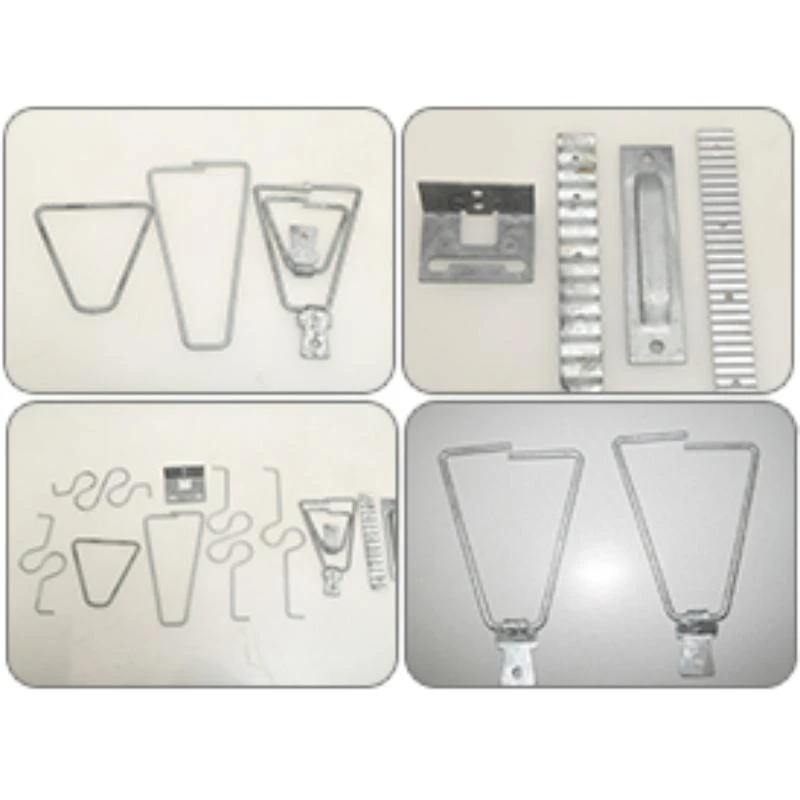
- Mobile Phone
- +8613931874955
- sales@cntcmetal.com
High-Quality Tailored Coil Springs for Your Unique Applications and Needs
Custom Made Coil Springs Precision Engineering for Every Application
In the world of mechanical engineering, the importance of coil springs cannot be overstated. These essential components are used in a myriad of applications, from automotive to aerospace, and from industrial machinery to consumer products. Custom made coil springs are particularly valuable as they offer tailored solutions that meet specific requirements, ensuring optimal performance and longevity.
Coil springs are defined as elastic devices made from coiled metal that can store and release energy, providing resistance to forces applied on them. When designing a custom coil spring, several critical factors must be considered the material, dimensions, coil diameter, wire diameter, spring rate, and overall load-bearing capacity. Each of these elements plays a vital role in the spring’s functionality.
Material Selection
The material used in coil springs is crucial. Common materials include carbon steel, stainless steel, and alloy steel. Carbon steel is favored for its strength and cost-effectiveness, while stainless steel offers superior corrosion resistance, making it ideal for applications in harsh environments. Alloy steels can provide enhanced durability and strength, suitable for high-stress applications. The choice of material will depend on the specific operational demands of the spring within its intended application.
Precision Dimensions
Dimensions are tailored based on the unique specifications of the application. Factors such as the outer diameter, inner diameter, and free length of the spring must align with the space constraints and functional requirements of the device it will support. Customization allows for a perfect fit, ultimately enhancing the performance and reliability of the end product.
custom made coil springs

Spring Rate and Load Capacity
The spring rate is a fundamental aspect of coil spring design, representing the amount of force required to compress or extend the spring by a unit of distance. A properly calculated spring rate ensures that the spring can handle the expected loads without permanent deformation. Engineers must consider both static and dynamic loads, as well as the potential for fatigue over time. By customizing springs, manufacturers can optimize the balance between stiffness and deflection, ensuring that applications perform efficiently under varying conditions.
Applications of Custom Coil Springs
Custom coil springs serve diverse industries and applications. In the automotive sector, they are used in suspension systems, providing the necessary support and comfort while absorbing shocks from the road. In the aerospace industry, precision-engineered springs are critical for various components, including landing gear and control systems, where reliability is non-negotiable.
Further, custom coil springs find usage in electronics, where they may act as components in devices like keyboards or switches, ensuring smooth, reliable operation. Industrial machinery also relies on these springs for functions such as tensioning belts and providing counterbalance in lifting equipment.
Conclusion
In summary, custom made coil springs are invaluable components in engineering, tailored to meet the precise demands of various applications. Their adaptability in material selection, dimensional customization, and precise engineering ensures enhanced performance and reliability. As industries continue to evolve, the need for specialized spring solutions will only grow, underscoring the importance of innovation in manufacturing techniques and materials. By investing in custom coil springs, businesses can improve their product offerings, meeting the rigorous standards expected in today's competitive market. Whether for automotive, aerospace, or industrial applications, expert craftsmanship in spring design leads to success and efficiency in performance.
share:
-
Your Source for Concrete Wall Ties and Masonry AccessoriesNewsJul.10,2025
-
Unlocking the Power of Iron Wire for Every ProjectNewsJul.10,2025
-
Explore Advanced Chain Wire and Stainless Steel Mesh FencingNewsJul.10,2025
-
Discover the Benefits of Annealed Wire ProductsNewsJul.10,2025
-
Discover China Stainless Steel Wire Mesh SolutionsNewsJul.10,2025
-
Build with Confidence Using High-Performance Masonry AccessoriesNewsJul.10,2025
-
Why Sacrificial Formwork Is Redefining Underground ConstructionNewsJun.06,2025



















